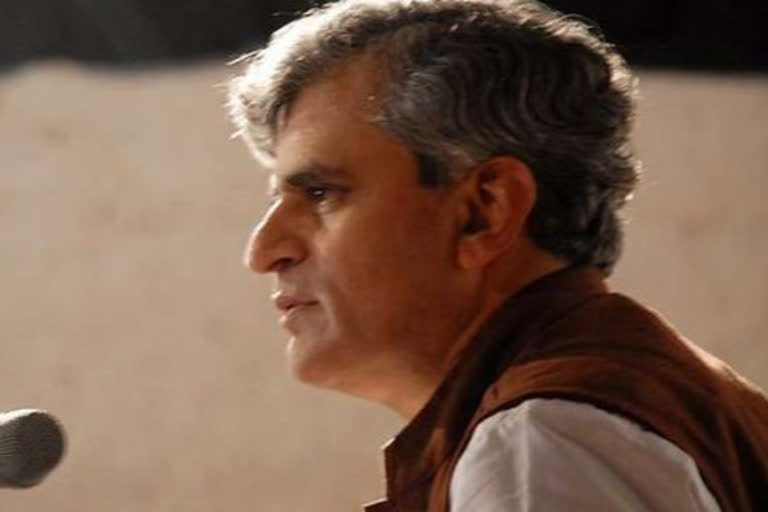Hyderabad: "You can write a manual on how not to handle a pandemic based on the performance of Indian states," remarked P Sainath. The Magsaysay award-winning journalist and currently the Editor of People's Archives of Rural India (PARI) speaks exclusively to ETV Bharat about the impact of the COVID-19 pandemic on the marginalised masses.
Criticising both the centre and the state governments (barring Kerala) for mishandling this crisis he urged: "I beg them on the knees, (and request them) please intervene... intervene in such a way that this problem never happens again."
Although, he added, "I am hoping against hope that the government will act in this large intervention. But nothing they have done so far persuades me to think that they will do the right things."
Sainath opined that the way both the central and the state governments, except in Kerala, dealt with the pandemic was fraught with a lot of mistakes. He lashed out at the Modi government for not giving people sufficient notice before announcing a complete lockdown in the country on March 24 and making them suffer hugely because of that. Quoting a veteran army officer, he said that even army units get more than four hours notice to prepare for making a major move.
Calling the relief packages announced by the Modi government a "fraud" he said - "it is not a package, but a packaging". Most of these packages are nothing but old schemes presented in a new way, he said. Quoting some eminent economists he said that the provisioning for these relief packages is not even one per cent of our GDP when most of the developed countries have earmarked far greater amounts for the same.
READ: Move to ban 27 Generic Pesticides will open doors for China: PMFAI
Emphasising a need to provide large employment in rural areas, he said that we need to expand the MGNREGA by about six to ten times.
He also advocated for investing in a big way into public health and education. Citing the examples of Spain and Ireland, "the two capitalist countries", where nationalisation of private medical facilities was done to provide universal health care to COVID patients, he asked why similar things did not happen in India.
The migrants who have gone back to villages will certainly come to cities, sooner or later, said Sainath, who is known for huge documentation about this subject done by him over the years. What options do they have, he quipped.
Citing from his own experience and studies done in 1993, he said that the Gujarat Chamber of Commerce people had to go to Odisha then to woo back the Odia workers, who, just a few days ago, were chased away during the communal riots in Surat.
Stressing the need to support the agriculture sector by providing a lot of free inputs, he said that farmers need to grow more food grains rather than going for cash crops as is being told to them by the state governments. Saying that, huge stocks of cotton or sugar are piling up without any takers and situation could be worse in future, he added that it is for their (farmers) own security as it will ensure that they will be at least self-sufficient in their needs of the food.
In the end, he said that we do not need development, but we need justice. The government policies should be based on the directive principles in the constitution which are aimed at bringing in justice, he added.



